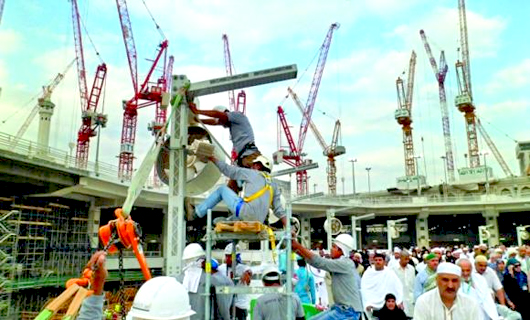
Jeddah, Jan 8: A life size replica1The ongoing expansion of mataf, or circumambulation area around the Kaaba, would be completed before this year’s Haj, said Abdul Rahman Al-Sudais, head of the Presidency of the Two Holy Mosques, on Wednesday.
Inspecting the Haram expansion project here, he said thousands of pilgrims would be able to use the expanded mataf during the upcoming Haj season. “Most of the work would be completed before Ramadan in preparation for the peak Umrah season,” he said.
Al-Sudais said the third phase of the mataf expansion was progressing well and would increase its capacity to 105,000 pilgrims an hour. There would be no obstacles in the mataf area, which would be expanded and will have modern facilities.
He said officials were doing their best to ensure that pilgrims are provided with excellent services. The completed areas of the Haram expansion project, including the new building, would be opened to worshippers to reduce congestion caused by work on the mataf, he said.
Meanwhile, Al-Sudais condemned the terrorist attack on a Border Guard checkpoint in the northern city of Arar that resulted in the death of three Saudi soldiers including Brig. Audah Al-Balawi, a commander in the Northern Border Region.
He said the attack was against the teachings of Islam, which urge Muslims to protect the lives and honor of others. He commended the role of security forces in defending the Kingdom, its people and holy places.
“This is the treachery of the enemies of Islam who want to make this land of Islam a battleground for them. This is flagrant aggression and a terrorist act,” Al-Sudais said.





Comments
Add new comment